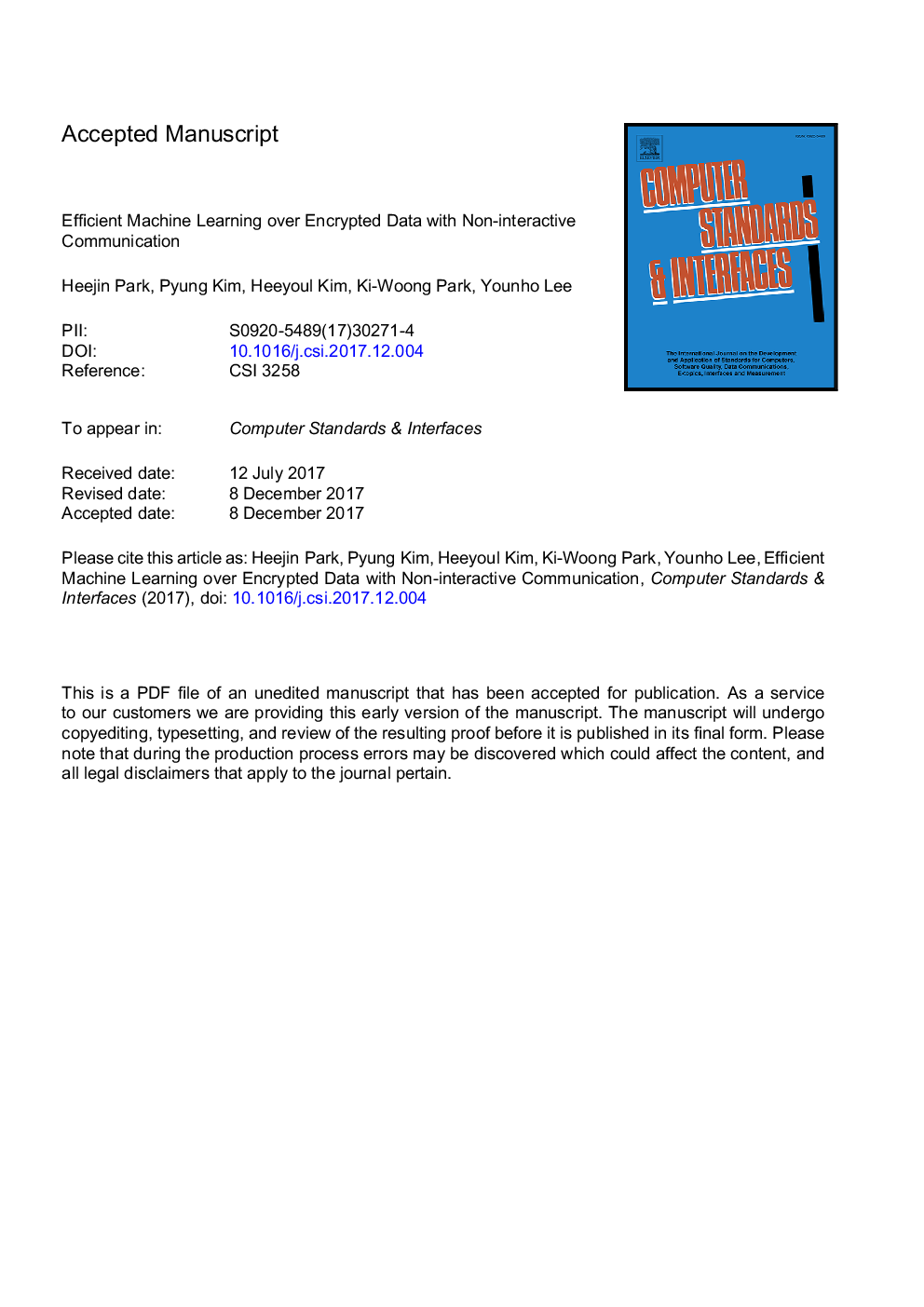| Article ID | Journal | Published Year | Pages | File Type |
|---|---|---|---|---|
| 6883135 | Computer Standards & Interfaces | 2018 | 29 Pages |
Abstract
In this paper, we describe a protocol framework that can perform classification tasks in a privacy-preserving manner. To demonstrate the feasibility of the proposed framework, we implement two protocols supporting Naive Bayes classification. We overcome the heavy computational load of conventional fully homomorphic encryption-based privacy-preserving protocols by using various optimization techniques. The proposed method differs from previous techniques insofar as it requires no intermediate interactions between the server and the client while executing the protocol, except for the mandatory interaction to obtain the decryption result of the encrypted classification output. As a result of this minimal interaction, the proposed method is relatively stable. Furthermore, the decryption key is used only once during the execution of the protocol, overcoming a potential security issue caused by the frequent exposure of the decryption key in memory. The proposed implementation uses a cryptographic primitive that is secure against attacks with quantum computers. Therefore, the framework described in this paper is expected to be robust against future quantum computer attacks.
Related Topics
Physical Sciences and Engineering
Computer Science
Computer Networks and Communications
Authors
Heejin Park, Pyung Kim, Heeyoul Kim, Ki-Woong Park, Younho Lee,
